#as a society we mess people up so bad by mistreating the entire population of children
Explore tagged Tumblr posts
Text
It's true that there's a set of tyrannical old people who are unfairly influential. But being old is not what gave them power.
There's a certain kind of insidious propaganda regarding marginalized groups, an idea that targets young people but affects everyone... "People like you don't survive that long."
It's that stupid myth that "trans women have a life expectancy of 33."
It's when you come out to your mom and she says "it's just a phase."
It's the understanding that there are autistic kids, but complete ignorance about autistic adults.
There's this idea that the "weird" people either get fixed somehow, or they just... go away. And if you absorb this belief you will feel so much more isolated.
Pay attention to your marginalized elders. Not just for their sakes, but for yours. Not because their life experience means you "have to" listen to them (you don't), but because they are living proof that you are allowed to exist and continue being yourself. Because their stories can teach you so much about bravery, both the loud bravery of defiance and the quiet bravery of persistence.
Treasure your elders not because they are elders but because under all the generation gaps and wrinkles and culture clashes, they are your people. They have traveled far through time to meet you.
Look beyond the surface that is being sold to you. You never know where you will find a kindred spirit.
You don’t hate the elderly; you hate people who are living long lives at the expense of others, people whose longevity is made possible via suffering and injustice. There is no generational conflict and there never has been. You have more in common with old people living in poverty than you ever will with someone who watched the same TV shows you did when you were both twelve.
#ageism#it's so easy to go from seeing individuals that seem 'other' to you to just seeing a scary monolith of dehumanized otherness#and i think especially easy for young people to dehumanize older adults#because their experience is so alien to yours the whole time you're growing up#because our society is so weirdly stratified and atomized into age groups#the same way some adults dehumanize kids#something that's important to realize as you grow up is that people are people for their entire lives#babies are people#90 year olds are people#we're not as different as we think#and it's not your fault if you're dehumanizing people in different age groups but it is your responsibility to move past that#as a society we mess people up so bad by mistreating the entire population of children#the defensiveness against people older than you is a natural response#but once you're an adult the thing is they can't get you like that anymore#barring other power structures like financial control and employment and politics#it's easy to think of those things as being based on age but really the ageism in those systems is just one corruption of many#and it impacts everyone#i wish more 18 to 25 year olds would realize that people in their 50s and 60s can sometimes be their best allies#and vice versa!#i also have a tangential rant about the intersections of ageism and ableiam#but this is too many tags already
47K notes
·
View notes
Text
Supergirl season two full review
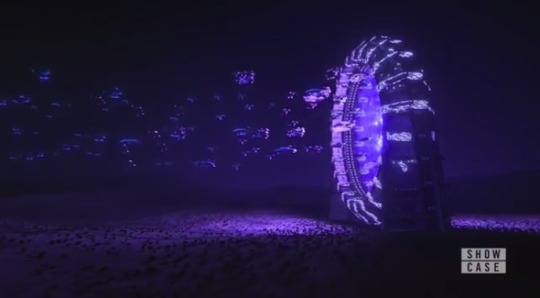
How many episodes pass the Bechdel test?
100% (twenty-two of twenty-two).
What is the average percentage per episode of female characters with names and lines?
49.93%
How many episodes have a cast that is at least 40% female?
Nineteen.
How many episodes have a cast that is less than 20% female?
Zero.
How many female characters (with names and lines) are there?
Twenty-five. Thirteen who appear in more than one episode, five who appear in at least half the episodes, and two who appear in every episode.
How many male characters (with names and lines) are there?
Thirty-six. Thirteen who appear in more than one episode, four who appear in at least half the episodes, and one who appears in every episode.
Positive Content Status:
Though the numbers turned out higher than last season by virtue of some stellar narratives in the early part of the season, in reality this was a disappointing return to the show, by-and-large shallower and overly dependent on life-defining concepts of unhealthy romance (average rating of 3.09).
General Season Quality:
Starts out fantastically well, but loses steam around mid season, and turns pretty damn sour by season’s end. A shocking waste of the potential promised by the first season; I’ve practically got whiplash from how severely this turned.
MORE INFO (and potential spoilers) under the cut:
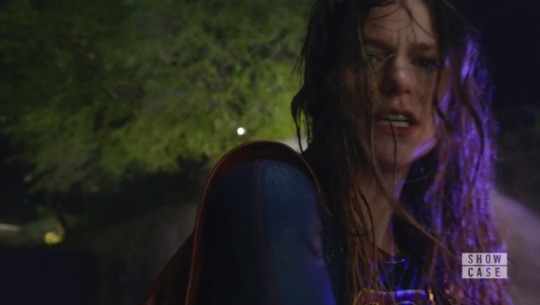
Well, this was a clusterfuck. Let’s see if we can break it down into three manageable categories: world building, politics, and relationships.
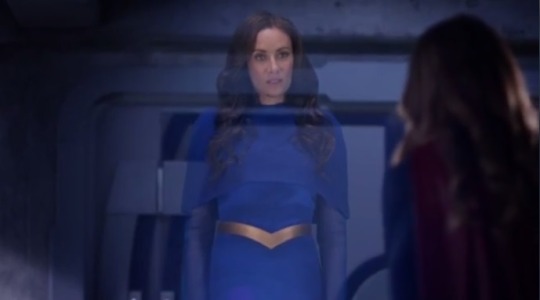
The primary victim of this season’s bad storytelling is the alien world of Daxom, and the shoddy world-building there leaks out all over the rest of the narrative. We’re told initially that Daxom is some horrible party planet whose politics were at odds with truth, justice, and the Kryptonian way - we’re told this within a clear framework of confronting ingrained prejudices (something I applauded at the time, you may recall), a context which implies that there is complexity and nuance to Daxom that is going unrecognised, and which we might reasonably expect to explore as the season progresses. It doesn’t happen. We’re told that the people of Daxom are kept drunk so that they won’t question their oppression; we’re told that they were all too drugged up to ‘feel anything’; we’re told that they maintained a sex-drenched hedonistic society headed by an evil, war-mongering, slave-owning royal family (the slavery thing really makes it seem like Kara buried the lede by complaining about a ‘party planet’, too: honestly who cares if they’re partying? They have slavery. SLAVERY). Our hero Supergirl even tells us that the Daxomite prince was ‘the worst of the lot’, though she conveniently neglects to detail how he was the worst, which becomes conspicuous once it is revealed that her new boyfriend Mon-El is that prince. Everything we ever learn about Daxom is cartoonishly negative; it’s also somewhat at odds with itself. Were the Daxomites viciously oppressed and constantly partying? While it is technically possible to have both be true, the entire planet is treated as such a homogenous whole it’s hard to know who was suffering, who was livin’ it up, and who was doing both. Are the rich people being kept drunk and drugged so that they won’t object to their own superiority? Are the poor people provided the freedom and resources to party hard on a constant basis to prevent them from rioting over their non-specified hardships? The details are so vague we can’t even draw clear conclusions about who is responsible for this situation, because if everyone is drunk, drugged, or otherwise unable to gain perspective on their circumstances, then can they really be blamed for them? Daxom’s entire population is tarred with the same broad brush, a collection of cliches masquerading as world-building but really only serving to form a blurry image of a dysfunctional and inherently bad society. And with Daxom’s bevy of stereotypes standing unquestioned and therefore unclear, we segue easily into...
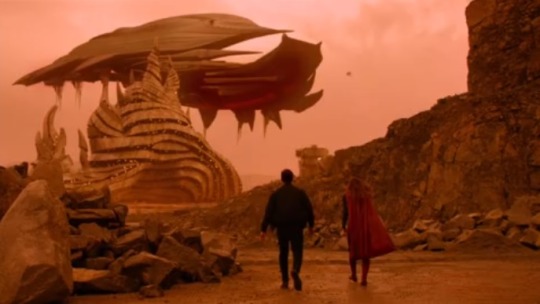
Politics. Early on when I applauded the show’s transparency about stating its political convictions, I had no idea how far they intended to take it, and how blisteringly uncool it would be. Where, at that early stage, the politics the show was declaring was all about equal rights and therefore undeniably positive, as the Daxom issue grew the political mess became far less inclusive. Despite being confronted by the reality of Krypton’s flaws back in the first season as well as in this one, the positioning of Daxom as an uncomplicated evil serves to backtrack on Supergirl’s personal growth in recognising that she is not immune from bigotry herself, instead validating her hatred. Ironically, they get the opportunity to examine the same confrontation for Mon-El later in the season when meeting with his parents forces him to acknowledge how far his personal beliefs have strayed from his upbringing, and yet they waste that chance as well, because duh, Daxom is bad. Exploring what was wrong with Daxom wasn’t about furthering that statement on equal rights, not least because exploration of Daxom’s flaws didn’t really happen at all, we were just handed the party line and told to go with the idea that this whole planet was garbage. And then on top of that, the show went and made the political division of Krypton and Daxom into a stand-in for real life American Democrats vs Republicans, with Rhea echoing Republican catchphrases while the much-championed equality-advocate and literal alien President of the United States is explicitly identified as a Democrat! Supergirl’s writers thus make a statement not about political policy or basic rights, but about political affiliation in the real world, and there’s nothing positive about using the cartoonish villainy of Daxom as a vehicle for attacking Republicans. This sends the message that Supergirl is not a show for Republican audience members, and that divisiveness is just not useful. Instead of using their show as a platform to promote positive and healthy ideas, it is used as a weapon to shame and (again with the irony) alienate a potential half of its viewership, and in the current political climate, that’s irresponsible story telling, not to mention anathema to Supergirl’s first-season theme of unity across barriers.
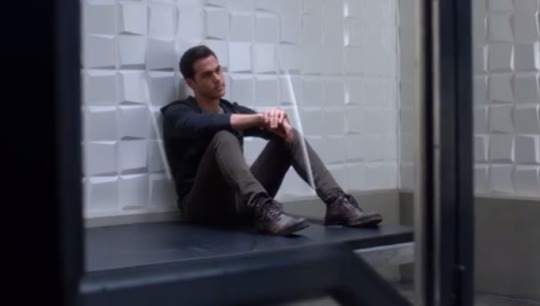
So, we have a world that is just broad-strokes Bad News, an ill-advised not-metaphor for real-world political divisions, and a bunch of missed opportunities to explore the nature of bigotry. That last one is a bigger problem than it may initially appear, too, as noted in the episode posts: if the writers were trying to tell this story in a serious way, they’d have really invested in deprogramming Mon-El. As eager as they were to make Daxom ‘evil’, they didn’t want to also make Mon-El ‘evil’ as Kara said he was when she spoke unknowingly of Daxom’s prince, and so Mon-El becomes a victim of the vague world-building of Daxom, and creates a feedback loop which in turn makes Daxom’s world-building more vague by virtue of its politics not being clearly reflected in the unfiltered behaviour of its favourite son. The show wants Mon-El to be blamed for being born the prince of Daxom, but it also doesn’t want that - it wants the cheap drama of Kara expressing her own bigotry, but it doesn’t want Mon-El to actually be that bad, but it doesn’t want to admit that Kara is prejudiced, but it doesn’t want her opinion to be wholly justified in this one instance, just every other one, etc, etc. The show is too afraid to demonstrate Supergirl having ugly beliefs of her own to question, nor does it really want to do its due diligence on having Mon-El process the complex reality of having everything he was raised to believe called into question and/or summarily rejected by his new society. In the process, the season forgets to have any kind of moral centre, losing itself in that all-encompassing disavowal of Republican politics but failing to be specific even then, and a superhero story without a moral centre is...kinda pointless. The resulting mess of politics and lazy short-hand, again, cripples Mon-El’s functionality as a character as he ends up tacked together out of disparate pieces, never really Daxom enough for Daxom, his playboy issues mostly pared down into base-level comic relief, and a grotesque romantic entanglement thrown in over the top to make his convoluted non-personality worse.

Which brings us to: relationships. Perhaps surprisingly, I don’t actually think Mon-El himself is the worst part of this season - as noted above, I see him as a symptom of much bigger issues - but his relationship with Kara is a huge problem. It plays pretty much every toxic bullshit trope I would have expected this show - especially after the precedent of awareness set last season - to avoid. The fact that Mon-El’s fuckboy behaviour is the only real evidence of that Daxomite heritage the show is refusing to properly unpack means it comes off not as a learning curve for him so much as an uncharacteristic weak point for Kara, that she would tolerate being screwed around by the thoughtlessness of this guy. That the show repeats this lazy drama literally one episode after another, having Mon-El mistreat or disappoint Kara at the start but make it up to her by the end, is further damaging as it shows Kara suffering a cycle of poor behaviour without any indication of why she keeps coming back to it, which again makes her appear weak-willed in total contradiction of her usual Supergirl persona, feeding an image of her as so love-struck as to be victimised by it despite any such ‘love’ being entirely unearned by the arcs of the narrative. That this is not only a massive unhealthy cliche but also one which is being served up without commentary as though the writers legitimately think it’s unproblematic romance makes it all the more shocking. Kara’s personality is overridden by her romance with Mon-El, and the rest of her relationships - most notably with Alex - are sidelined in favour of it; as the season wears on Kara rarely manages stories of her own that don’t revolve around the spontaneous and awkwardly forced romance with Mon-El. Why does she love him? Because the script says so. She loves him despite him being a Daxomite, but we’re not gonna explore that because it’s in admitting-that-good-guys-have-flaws territory. Giving the romance nuance or believability or unpredictability would require better characterisation of Mon-El and therefore Daxom and therefore, Kara’s prejudices that we’re supposed to pretend aren’t really a problem because Daxom is Evil. If Kara could have spent the season navigating the pains of bigotry with Mon-El, that would have been interesting and thought-provoking storytelling, and if they really insisted on making a romance there at least they woulda been treading some less generic ground.
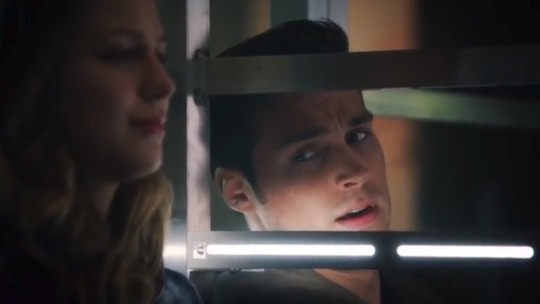
Then again, they were already treading less generic ground when Kara was oh-so-briefly with James Olsen, before some fuckwit decided that it was too racially subversive to tell that story, and James ended up shafted with a promising but under-developed personal story and little to no contact with the rest of the characters all season long, making it almost weird when he occasionally graced us with an appearance. Alex at least fared better in the relationship that drew her away from Kara the majority of the time, scoring one of the only good subplots of the season in the form of her coming-out process, though I must admit I dislike Maggie and find her a flat, poorly-drawn character, as if the writers went ‘she’s a tough lesbian cop! That’s three words! It’s plenty of personality!’ and just kinda left it at that, and that taints the ongoing story of Alex’s personal life. The only passable romance in this season of Unnecessary Romances For Everyone Not Called James was J’onn and M’gann, and that possibly only worked because it was understated and featured but briefly; Winn’s relationship with Lyra, on the other hand, was just another cliche mess as irritating as it was dull, and pointless to boot, like the writers couldn’t figure how to write Winn a personal plot without it being a romance. Nice work, guys.
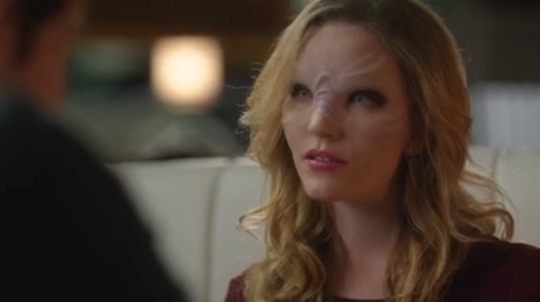
There is so much more that we could complain about this season - don’t even get me started on the total misfire which was the CADMUS plot - and so few things to appreciate - Lena Luthor deserves a nod, queer rep is always a win, Martian stuff is great, Clark Kent is delightful - but it’s probably time to let this bad batch go. If we’re lucky, the folks behind Supergirl learned about a trillion lessons about how to do storytelling and will get back to actually trying, come season three. If not, I guess y’all can look forward to me bitching about it. A lot. They burned my trust in this show worse this season than I would have thought possible, and I’m not convinced they can earn it back. We’ll see.
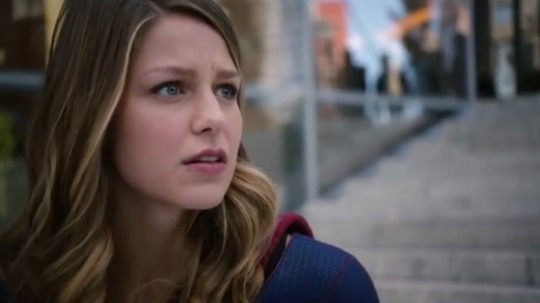
73 notes
·
View notes